Never Take a Shower That's This Long, Say Doctors
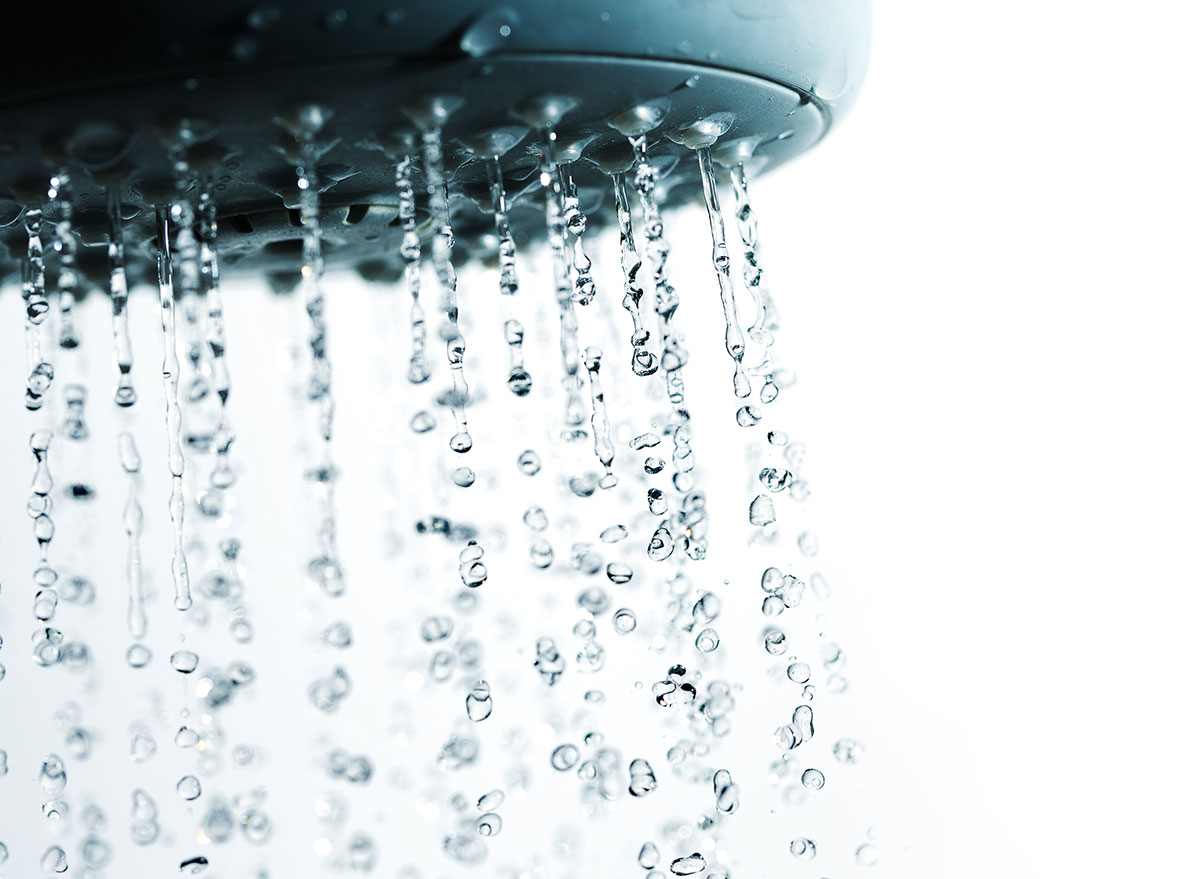
For reasons we can't fully explain, you could divide Hollywood celebrities into two warring camps right now—those who bathe, and those who choose not to bathe as much. It all appeared to start when actor Jake Gyllenhaal remarked to Vanity Fair that he finds "bathing to be unnecessary at times," and celebrity couple Ashton Kutcher and Mila Kunis copped to "waiting for the stink" before washing their children. Since then, actors from Dwayne Johnson ("I'm the opposite of a 'not washing themselves' celeb," he revealed via Twitter) to Jason Momoa ("I shower, trust me, I'm Aquaman, I'm in the #$*@ing water") have publicly defended their bathing habits.
Now, to be clear, the leading dermatologists will tell you that it's actually OK to not bathe every single day. "In general, for showering, hot water, and harsh detergents and soaps can strip the skin of its protective oils," Betsy Greenleaf, D.O., FACOOG, a board-certified urogynecologist, told us. "The more one showers, the more dry the skin becomes. My opinion is that daily showering is not necessarily needed. Twice a week, could be considered an average. But it ideally depends on activity type, activity level, and personal comfort."
As we reported recently, the one time you should always shower is immediately after exercise. Not only will you smell (as if that's not reason enough to shower), but also bacteria will mix with your sweat, which can lead to skin infections, rashes, lesions, acne, psoriasis, eczema, yeast infections, and athlete's foot. Oh, and your UV protection will decrease, so you'll be more at risk of sunburn.
So, if we had to boil down our instructions for proper showering, we'll borrow the phrasing from Michael Pollan's famous dictum about weight loss and healthy eating: Shower some. Not too long. Always after sweating.
But wait—how long is too long in the shower? After all, one of the benefits of showers and that, unlike baths, they can be short. But, at the same time, one of the great joys of showering is making them long. You know, when you dial up the heat and relax and drift off into your thoughts, or even take a seat, basking in your own little watery oasis.
If you're someone who likes to camp out in the shower, we've got news for you: We reached out to several dermatologists, and here's exactly how long is too long in the shower. So read on, and for more tips for proper showering, make sure you're aware of the Showering Mistakes That Are Ruining Your Hair, Say Stylists.
If You're in There 15 Minutes Later, You're in There Too Long
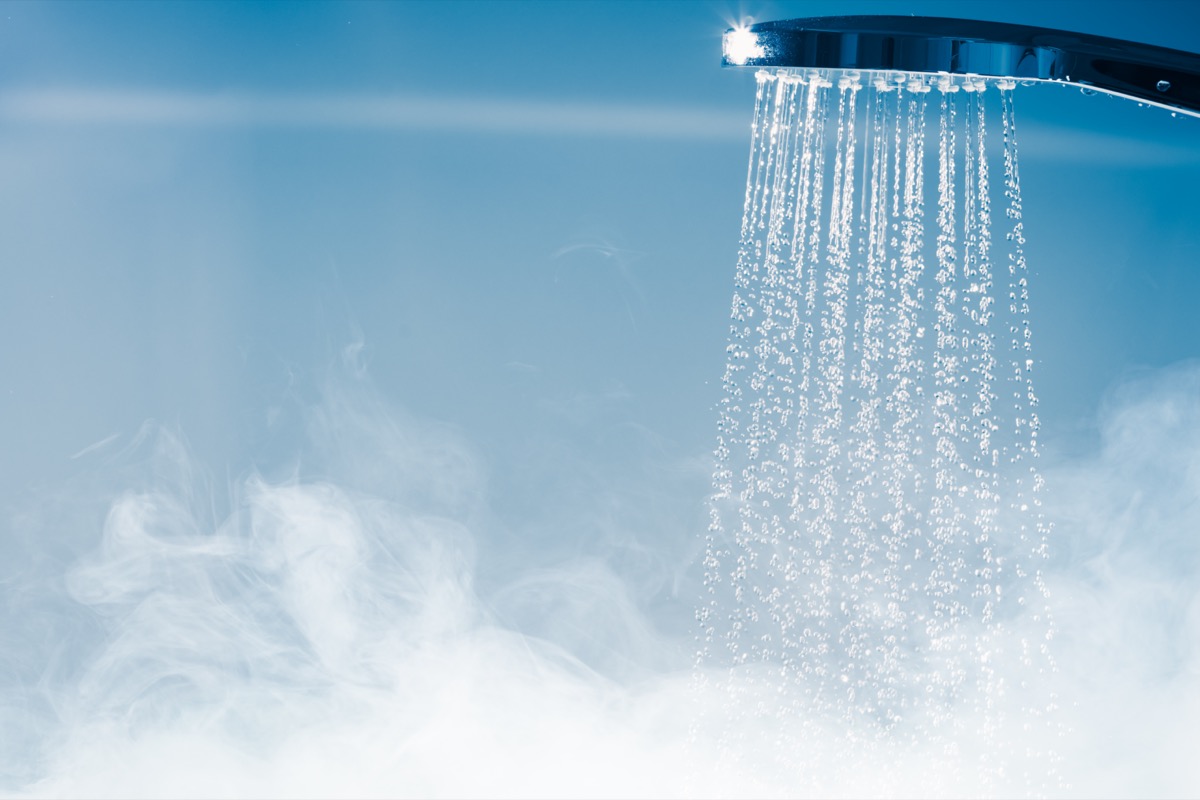
Setting aside temperature, a general rule of thumb for shower length is roughly 15 minutes, say experts. "I think a good period of time [in the shower] would be anywhere from 5 to 15 minutes," says Anna Chacon, M.D., a dermatologist based in Miami, Florida. "It's just enough time to rinse off and shampoo/condition your hair, as well as apply soap. Over 15 minutes—or when your hands turn wrinkly—may be too much time. Or when you notice the water starts to turn cold… its time." And for more on bathing, see here for the 5 Things Taking a Hot Bath Does to Your Body, Says Science.
But Temperature Matters
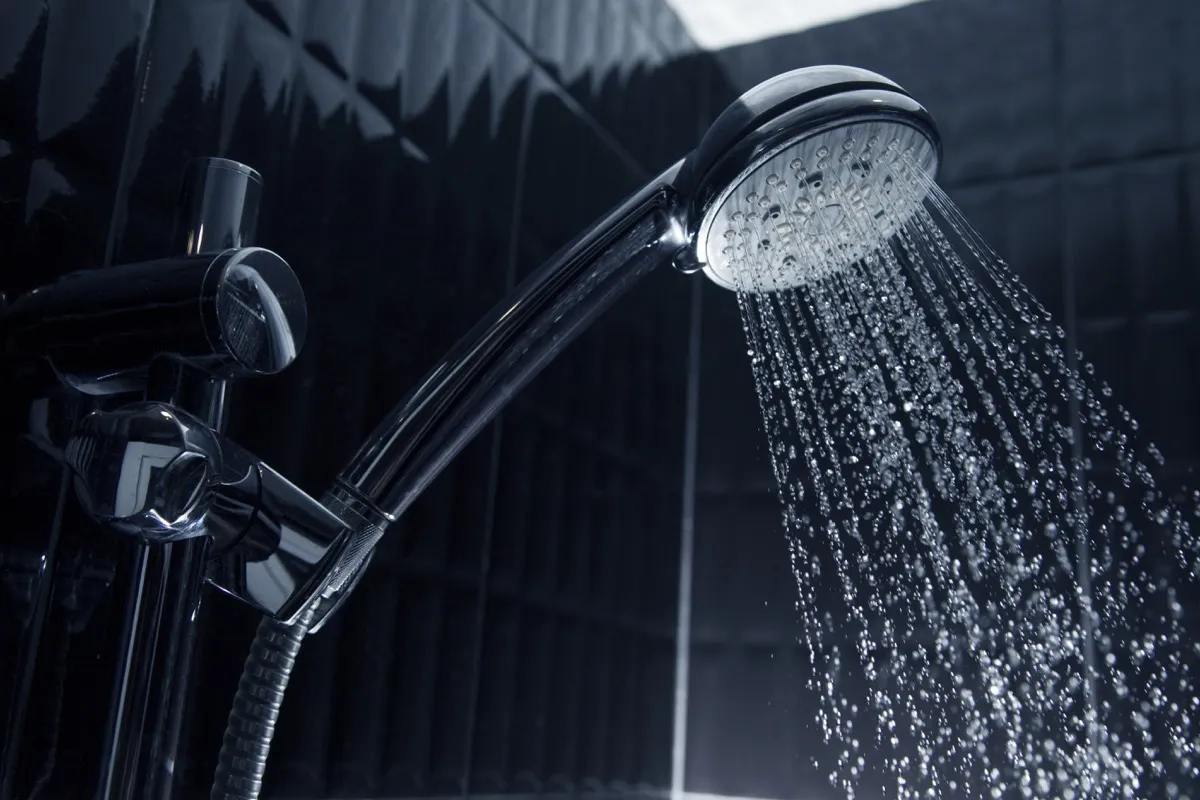
It's simply a fact that the hotter the water is, the shorter your shower should be—for not only your skin (as hot water strips your skin of essential oils) but also for your health and safety. "One of the issues with shower length is if the shower is too hot," says Greenleaf. "Overheating can occur, and a number of studies have connected shower temperature and risk of cardiovascular events."
But back to those oils. Your body produces a natural barrier on your skin, made of proteins and lipids, as Heidi Waldorf, MD, a dermatologist, explained to Bustle. Hot water combined with soap can break down your skin's natural defenses. "The time in the water strips the natural proteins and lipids that make up the brick and mortar 'wall' of … the outer barrier, of the skin," she said. "Using soap instead of a replenishing cleanser [or] body wash, aggravates the situation. It's generally good to avoid extreme temperatures which can aggravate it further."
The Benefits of Taking Cold Showers
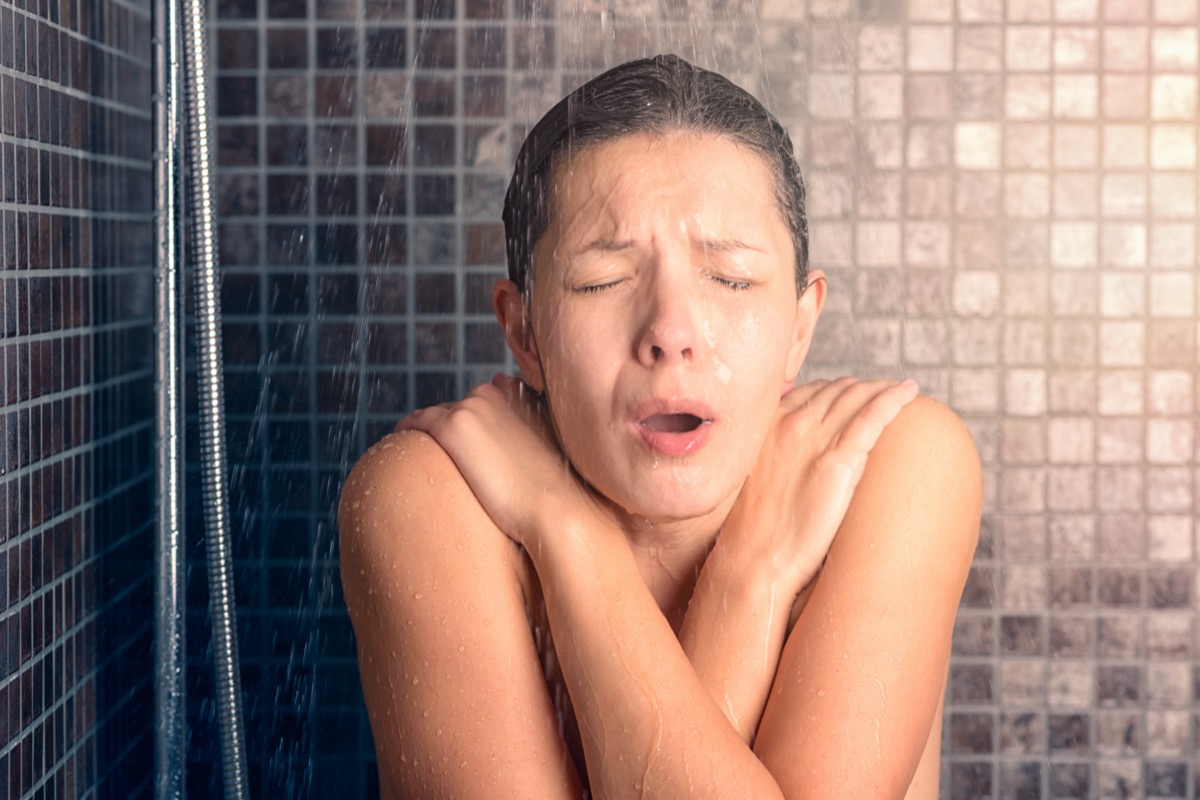
Though they're uncomfortable, leading dermatologists advise you to take a cold, short shower. "Shorter, cooler, less frequent showers are better for skin, especially in the winter when cold weather reduces humidity levels," Arielle Kauvar, M.D., another dermatologist, told Bustle. "Moisturize immediately after bathing and [pat your skin] dry to seal in skin moisture."
What's more, you can expect a raft of health benefits if you can brave cold showers. As we've reported, taking cold showers is linked with everything from procrastinating less to lowering your depression risk to having a stronger immune system to, yes, having glowing skin.
"Cold waters tighten your skin that gives a natural glow to the skin. When it comes to your hair, cold showers close and fortify your hair cuticles while adding more strength to them. Moreover, cold water also doesn't harm the natural barrier of your skin and hair," says Amber O'Brien, MD, of the Mango Clinic. For more on this, don't miss What Happens to Your Body When You Take a Cold Shower, Say Experts.
So, If You're Going to Shower…
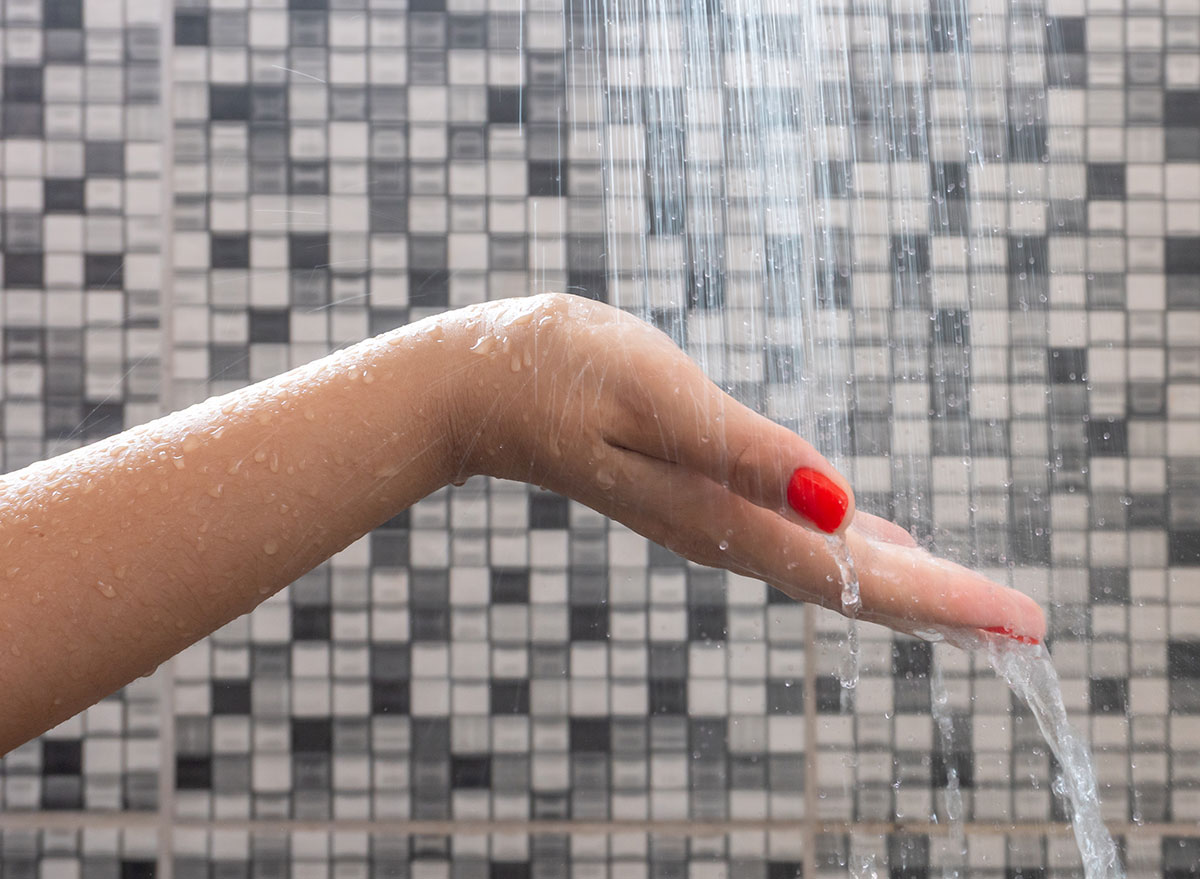
You should keep it under 15 minutes, don't use scalding water (if you can bear it), and try and use natural soaps that are free of harmful chemicals. Oh, and one more tip? It's actually best to shower later in the day than it is in the morning—seriously. "It's believed that showering in the evening is better for your skin health for a number of reasons," cosmetic doctor Rekha Tailor, MD recently explained Express. "In doing this, it removes the dirt from the air which includes germs, pollution and dust which can gather during the day, as well as sweat which accumulates. By showering at night, you are cleansing your skin of these before you go to sleep, thus enabling it to properly regenerate overnight." For more on the science behind this, see here for The Worst Time of Day to Shower, Say Experts.








